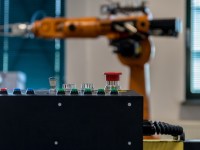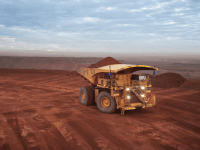BMW is expanding its recycling activities in China by establishing a closed-loop for the reuse of nickel, lithium, and cobalt from end of life batteries. According to BMW, the cycle conserves resources and reduces CO2 emissions by 70% compared to using virgin materials.
The BMW Brilliance Automotive joint venture (BBA) has started the recycling loop using batteries from BMW’s electric development vehicles, test systems, production rejects, and, in the future, end-of-life vehicles.
BBA is working with a local recycler that dismantles retired batteries and uses innovative technology to recover a high percentage of the raw materials nickel, lithium and cobalt from the battery cells. The raw materials obtained are used in the production of new battery cells.
“In light of the growing scarcity of finite resources and rising commodity prices, it is especially important to push forward with the circular economy, increase the percentage of reusable materials and reduce our dependence on raw materials,” says Jochen Goller, the head of BMW Group Region China.
“The BMW Group will expand its recycling concept in China in the future – which will not only contribute to environmental protection, but also effectively support China’s transition to a low-CO2 economy.”
China’s current policies require a high-voltage battery tracing system to be established to ensure batteries can be tracked and recycled once retired and BMW has created a coding system that traces batteries throughout their entire lifecycle.
The coding ensures batteries from the entire value chain, from initial test vehicles to vehicles already on the market, can be professionally recycled. Once returned, the batteries are evaluated for potential continued use.
BMW began using end-of-life batteries that retained a high capacity in forklift trucks at its BBA plants in China two years ago and the company plans to expand these “second-life applications” to pallet lifting trucks and stationary energy storage units.
If the batteries do not meet the criteria for a second use, BMW says that the nickel, lithium, and cobalt will be channelled into the production of new cells.





